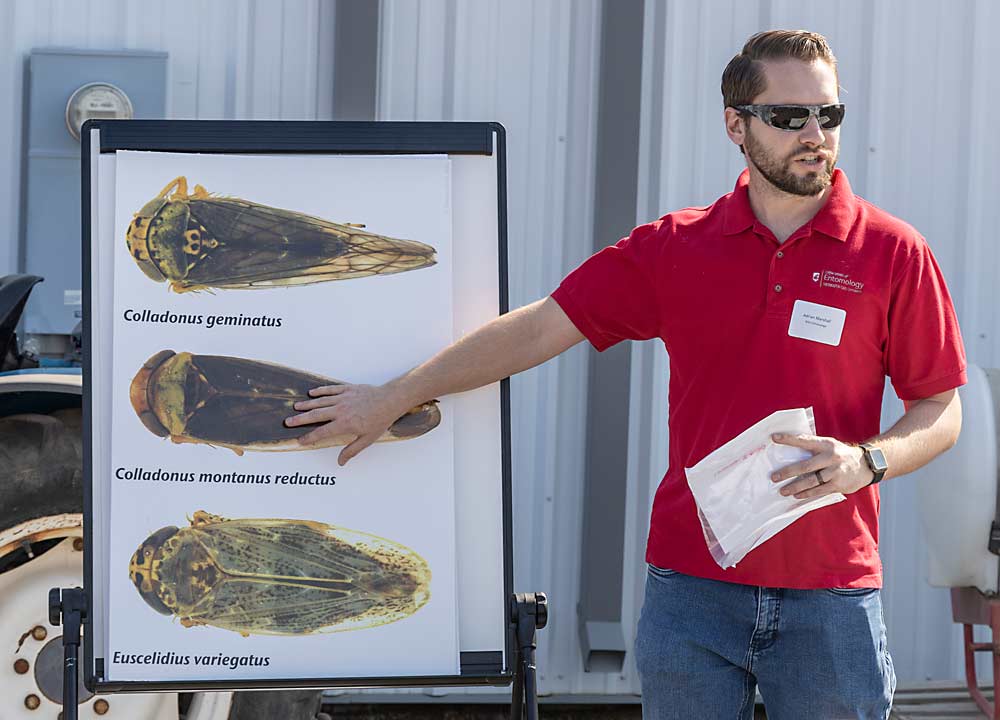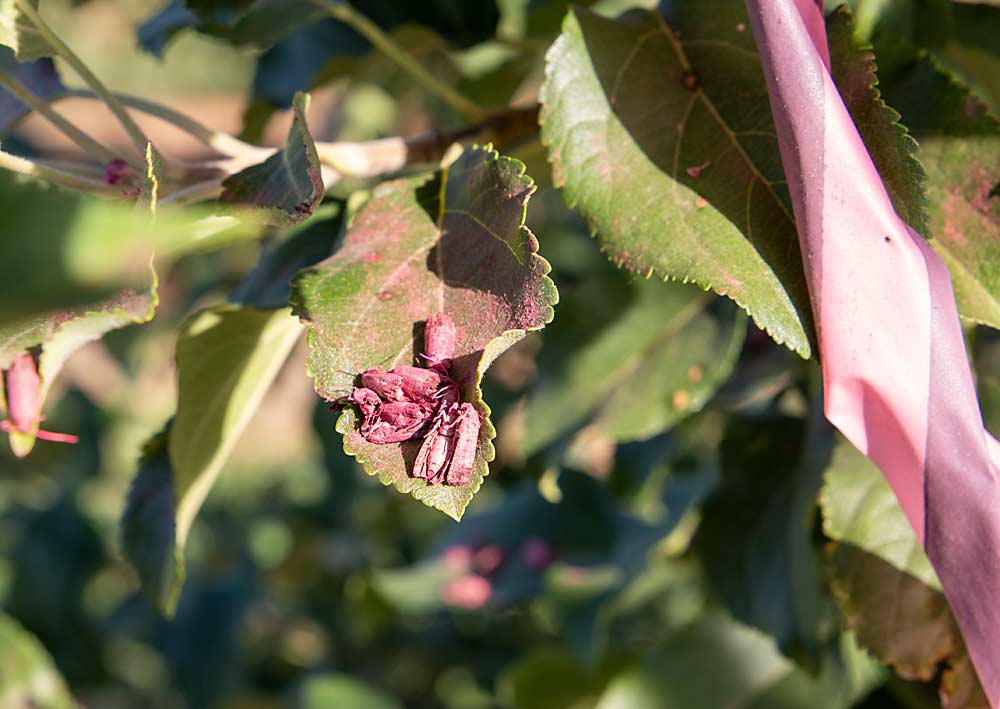
The Washington Tree Fruit Research Commission has been busy at work ensuring the tree fruit industry continues to produce the best fruit in the world. The goal of the research commission is to make educated decisions on behalf of the growers and to create a sustainable future based on scientific research.
Research reviews
Each year, the Washington Tree Fruit Research Commission holds research reviews for cherry, technology, apple crop protection, apple horticulture and postharvest and pear. While apple and stone fruit research is funded through the commission, based on grower assessment fees, pear research funding is administered through a federal marketing order in conjunction with the Fresh Pear and Processed Pear committees. These reviews create an opportunity for scientists funded through the research commission to give project updates to all members of the industry who attend.
In 2022, the Washington Tree Fruit Research Commission approved the following research funding:
—$496,691 for five new apple crop protection projects.
—$303,080 for four new apple horticulture and postharvest projects.
—$701,654 for 10 new cherry projects. (The Oregon Sweet Cherry Commission co-funded nine projects at 35 percent of the total funding request, and the Northwest Nursery Improvement Institute contributed $80,000 to a total of four projects.)
—$706,830 for five new technology projects, all of which are funded by apple assessments.
—$255,575 for five new pear projects, based on the recommendations of the Pear Research Subcommittee and approved by the Fresh Pear and Processed Pear committees.
The team is preparing for the 2023 research review season and looking forward to the new and innovative projects to come.

2022 little cherry disease funding summary
The research commission is dedicated to the support of little cherry disease (LCD) research. Little cherry disease is the umbrella term for the unmarketable fruit caused by different pathogens: the X disease phytoplasma and little cherry viruses 1 and 2. With the support of the Oregon cherry industry and the nursery industry, the commission directed $745,053 total in 2022 (69 percent of the entire 2022 cherry research budget) toward LCD research:
—$358,216 toward nine ongoing LCD research projects.
—$386,837 toward seven newly funded LCD projects (55 percent of the total new funding budget).
The commission is grateful to Northwest Nursery Improvement Institute (NNII) for its contribution of $80,000 toward four LCD projects in 2022.
Between 2014 and 2022, 27 LCD projects were funded by the research commission, Oregon Sweet Cherry Commission, NNII and the California Cherry Board. A combined total of $2,509,719 was focused on the following priorities:
—Identification and management of vectors.
—Development of PCR-based detection methods to confirm infection in symptomatic trees.
—Understanding basic biology of the disease complex.
—Determining how to remove trees and replant orchards (extension and outreach).
In 2022, the research commission and the Oregon cherry commission are shifting toward the following priorities:
—Detection methods that can identify LCD earlier in the disease cycle, when trees are asymptomatic.
—Fine-tuning of insect models.
—Establishment of a research orchard.
—Co-management with spotted wing drosophila.
—Infection biology in young orchards.
Automation
The Washington Tree Fruit Research Commission, as well as our board and committee members, understands the increase in labor costs and the burden to growers. We made it our priority to fund automation research to reduce the pressure on growers by focusing on a future where automation will increase productivity while decreasing labor cost burdens. During the 2022 research funding season, the commission granted the following in automation research funding:
—$104,050 toward two ongoing technology projects.
—$706,830 toward five new technology projects.
We look forward to discussing the progress of these projects at our 2023 technology research review.
Website updates
Our team streamlined and updated the commission’s website (treefruitresearch.org) to make it more user-friendly and relevant to our stakeholders. Website users will find up-to-date information about upcoming research reviews, current staff, requests for proposals and complete instructions for researchers who want to submit project proposals.
The commission is also proud to announce the research database available on the website, where users can access research project reports dating back more than 20 years. For more information on new and ongoing projects, including the LCD and automation projects, visit the website to find reports for each project funded through the commission in 2022.
Upcoming events
The 2023 research review season is upon us, and we are looking forward to receiving new and innovative proposals from scientists all around the world. All members of the industry are invited to join us to hear final and continuing reports of currently funded projects. All written reports are available on our website.
To make attending reviews easy, we have decided to use a hybrid format this year. Pesticide credits will be offered at all events. Here are the dates for the 2023 research reviews:
—Cherry: Nov. 8 at the Yakima Valley College Conference Center in Yakima.
—Technology: Dec. 1 at the Confluence Technology Center in Wenatchee.
—Apple crop protection: Jan. 24 at the Confluence Technology Center in Wenatchee.
—Apple horticulture and postharvest: Jan. 25 at the Confluence Technology Center in Wenatchee.
—Pear: Feb. 16 at the Confluence Technology Center in Wenatchee.
—by Paige Beuhler, Tory Schmidt and Ines Hanrahan
Paige Beuhler is the administrative officer for the Washington Tree Fruit Research Commission, Tory Schmidt is the project manager and Ines Hanrahan is the executive director.






Leave A Comment